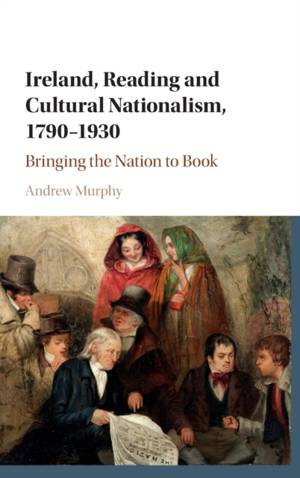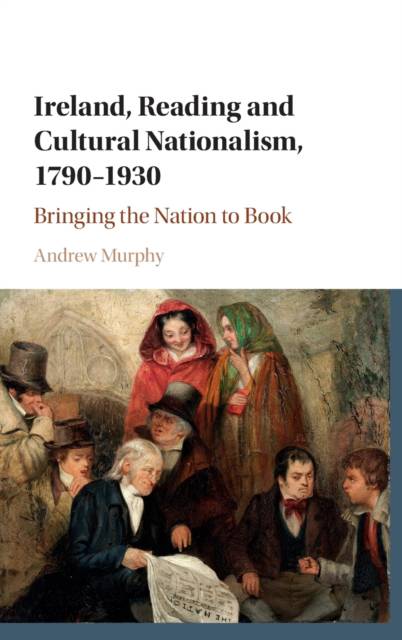
- Afhalen na 1 uur in een winkel met voorraad
- Gratis thuislevering in België vanaf € 30
- Ruim aanbod met 7 miljoen producten
- Afhalen na 1 uur in een winkel met voorraad
- Gratis thuislevering in België vanaf € 30
- Ruim aanbod met 7 miljoen producten
Zoeken
Ireland, Reading and Cultural Nationalism, 1790-1930
Bringing the Nation to Book
Andrew Murphy
Hardcover | Engels
€ 183,45
+ 366 punten
Omschrijving
The emergence of an Irish 'common reader' in the nineteenth century had significant implications for the evolution of Irish cultural nationalism. The rise of literacy rates prompted a cultural crisis, with nationalists fearing that the beneficiaries of mass education were being drawn to populist publications emanating from London which were having the effect of eroding Irish identity and corrupting Irish morals. This fear prompted an intensification of cultural nationalist activity at the turn of the century. Andrew Murphy's study, which includes a chapter on W. B. Yeats and the Irish reader, moves freely between historical and literary analysis, and demonstrates how a developing sense of cultural crisis served as an engine for the Irish literary revival. Examining responses to Irish reading habits advanced by a wide range of cultural commentators, Murphy provides a nuanced discussion of theories of nationalism and examines attempts finally to control reading habits through the introduction of censorship.
Specificaties
Betrokkenen
- Auteur(s):
- Uitgeverij:
Inhoud
- Aantal bladzijden:
- 262
- Taal:
- Engels
Eigenschappen
- Productcode (EAN):
- 9781107133563
- Verschijningsdatum:
- 26/10/2017
- Uitvoering:
- Hardcover
- Formaat:
- Genaaid
- Afmetingen:
- 164 mm x 242 mm
- Gewicht:
- 517 g

Alleen bij Standaard Boekhandel
+ 366 punten op je klantenkaart van Standaard Boekhandel
Beoordelingen
We publiceren alleen reviews die voldoen aan de voorwaarden voor reviews. Bekijk onze voorwaarden voor reviews.







